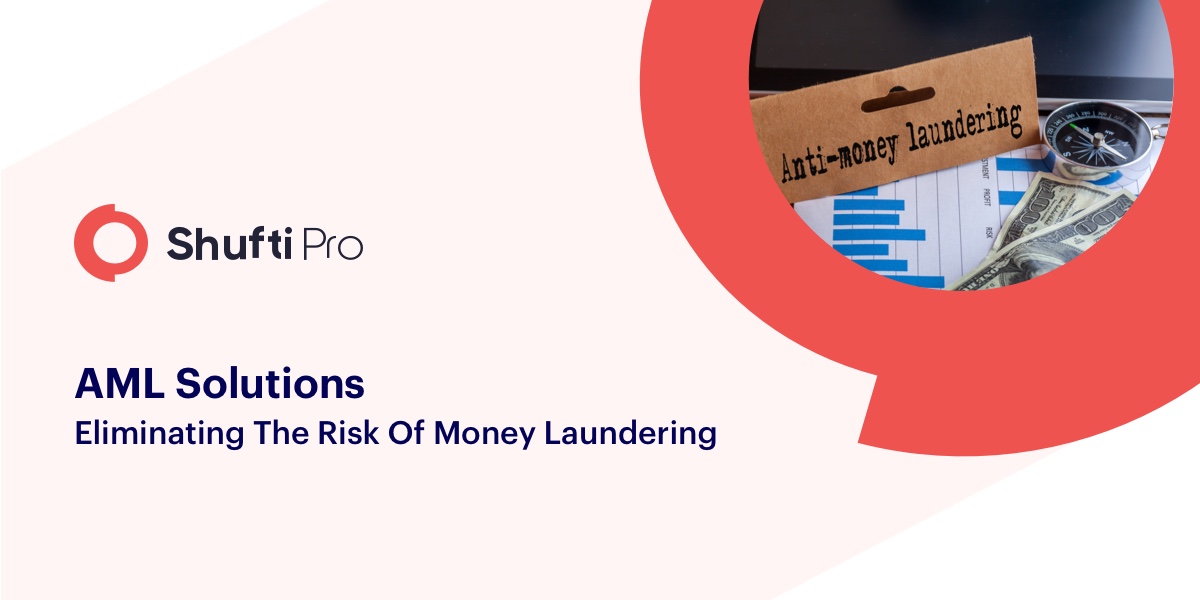AML Solutions: Eliminating the Risks of Money Laundering

Money laundering is a serious crime that can have serious and long-term consequences for your business. Oftentimes, small business owners are offered business opportunities that they can’t simply pass up. It looks like easy money, so they accept and start serving as a facilitator for money laundering. According to a PwC survey, global money laundering transactions account for roughly $1 trillion to $2 trillion annually or 5% of global GDP.
What is money laundering?
The basic concept of money laundering revolves around transforming dirty money into clean money or in a more formal way, money laundering is the process of making a large amount of money generated through illegal activity appear to have earned through legitimate sources.
Money laundering is typically done through 3 steps: placement, layering, and integration.
- Placement is to put illegal money into a legitimate financial system such as a bank
- Layering is to mask the source of money through a series of transactions and bookkeeping techniques
- Integration is to withdraw laundered money from a legal account and utilize it
Know more about money laundering process in this demo:
The money laundering is generally accomplished through currency exchanges, wire transfers, smurfing, and shell companies. Moreover, the globalization and digitalization have expanded the capabilities of money launderers, making it more difficult to identify the source of the transaction. Online banking, P2P services, money exchange businesses, and now cryptocurrency have made it difficult to detect the illegal transfer of money.
However, laundering money is a serious offence. It could lead to heavy fines, penalties and even jail time. According to International Comparative Legal Guide, the maximum penalties for laundering money are fines up to $50,000 or double the amount of property involved, whichever is greater, and imprisonment up to 20 years for each violation.
Risk of money laundering for small businesses
Small businesses are often the victims of money laundering. Criminals target small businesses because the owners of such businesses lack experience and knowledge about the risks involved with a certain type of business dealing. Further, they don’t have allocated resources and knowledge about Anti Money Laundering (AML) compliance.
Protecting your business against money laundering
By adopting anti-money laundering solutions and practices, you can protect your business from money laundering threats.
What is Anti Money Laundering?
Anti-money laundering or AML is a methodology or a policy that governs: how the company monitors transactions, detects and reports financial crimes to the regulatory authority. For this purpose, companies adopt different AML solutions that screens and tackles money laundering risks, which the company faces or could face in the future.
AML compliance was first coined with the formation of the Financial Action Task Force (FATF) in 1989. The main concept for its formation was to devise international standards to prevent money laundering and to promote these standards.
In past AML laws has been slow to catch up with cybercrimes, since most of the AML solutions were deployed for traditional banking institutes. However, amid the digital transformation, FATF and other regulatory authorities started focusing on digital transactions and devised stringent regulations to prevent money laundering using digital platforms.
To follow and comply with these regulations, businesses need AML solutions that could detect suspicious transactions and perform due diligence during the onboarding process.
Automated AML solutions for enhancing AML process
Artificial intelligence and machine learning have been transforming different operational sectors in the finance industry. Automating the tasks that involve data processing and analyzation, filtering out false alerts, and identifying complex criminal conducts are some of the tasks that are being automated using artificial intelligence. To prevent money laundering, banks and other financial institutes use AI-driven AML solutions. These systems are used to identify and categorise suspicious transactional activities.
AI is deemed crucial for performing repetitive tasks while saving time, resources and efforts, which can be reallocated for other tasks. Natural language processing and machine learning are usually adopted for automating AML screening tasks.
6 Ways AML Solutions can prevent Small Businesses from Money Laundering
Here are ways in which AI-driven AML solutions have revolutionised customer and business screening.
Enhanced due diligence
Artificial intelligence automates the enhanced due diligence process. It starts by taking steps to ensure you know who you are dealing with, understanding and monitoring their transactional activities and accessing their risks of money laundering.
Monitoring transactions and activity
AI-powered risk-based solutions and procedures help monitor ongoing customer activity to detect fraud, as well as money laundering activities including but not limited to placement, layering, and integration of funds.
Reviewing odd patterns of transactions
In most of the cases, launderers use hundreds of different accounts to perform small transactions that can easily surpass without being detected. While it’s difficult for humans to identify such transactions, automated AML solutions can easily identify such smaller transactions and reveal a pattern of illegal activity related to money laundering or terrorist financing.
Identifying Politically Exposed Persons (PEPs)
PEPs compliance is mandatory for firms. It is crucial to identify the risks associated with your customers. According to FATF, any person who is or has been holding any public office or function is a politically exposed person and to do business with any such entity, organisations should perform enhanced due diligence and monitor their ongoing transactional activities.
Money laundering is a serious risk for small businesses. In addition to facing criminal charges and hefty fines. Involving in money laundering activity intentionally or accidentally could lead to fines and may damage your brand reputation. With this in mind, small business owners need to study and comply with AML regulations.

 Explore Now
Explore Now













